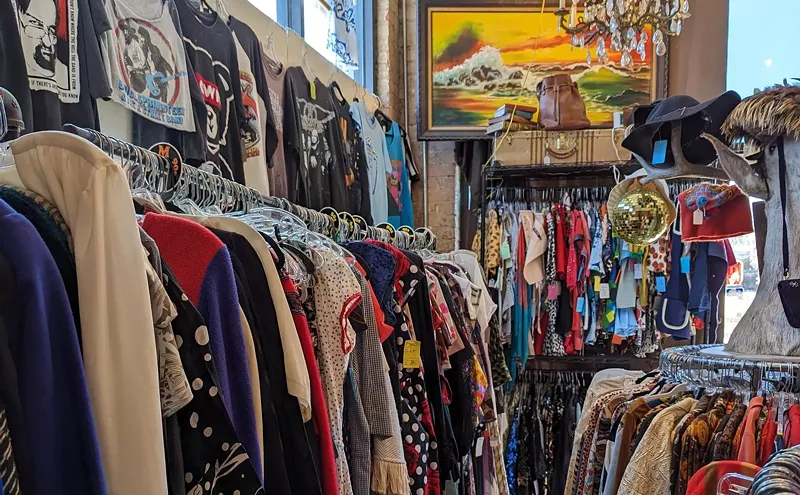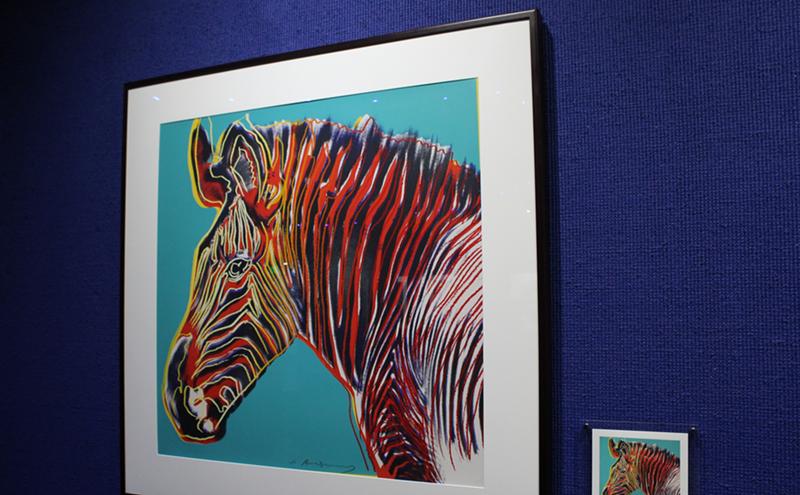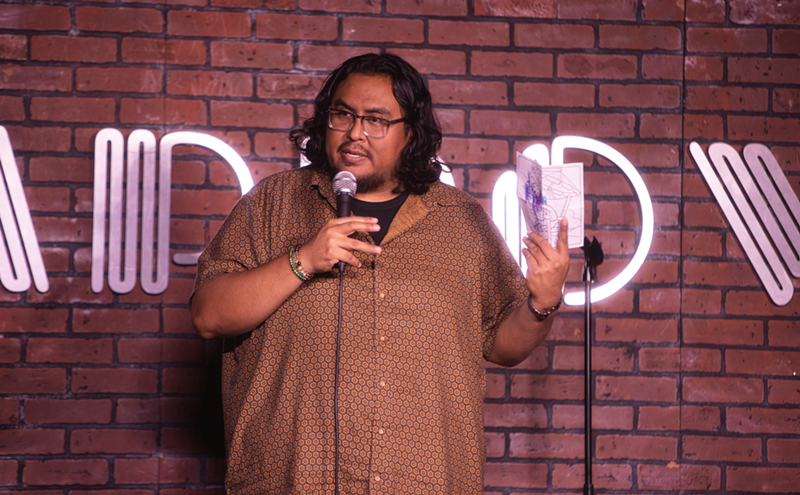"Look, no one's going to actually support TMZ, but what ever happened to shame?"
This is a big question Kyle Kinane's posing, one I'm not fully ready to unpack at 3 p.m. The comedian and actor is very vocal on Twitter, the modern stage for comedians, and on Tuesday, he had this to say about the 40th anniversary of Roe v. Wade: "Knowing a baby could grow up to work at TMZ should protect Roe vs Wade alone."
This may have seemed like an easy shot, as the ever-widening Twitter stage sags under the weight of immediate social commentary, but if you've seen Kinane's stand-up, you know his endgame went deeper than the desire to out-zing. He was trying to get to the root of our sick celebrity obsession, via an issue that's co-opted all too often in order to serve obsessive political agendas. Is there even a line between the two anymore?
"They're the ones giving publicity to those with no discernible talents," he adds. "But people watch it, then think, 'Who would watch this?' You're watching it! Nielsen doesn't care if you're watching something ironically. We've still made the Jersey Shore people millionaires."
In spite of that, Kinane's done pretty well the last few years. He's opened for Patton Oswalt, starred in Judd Apatow's Funny People and recently became the "voice" of Comedy Central promos. On Whiskey Icarus, his latest comedy album and first hour-long special for Comedy Central, Kinane says he wants comedy to be seen as an art form, and he does present his stories as those of great introspection and internal debate, threaded with anecdotes about eating pizza alone and being drunk on a plane. He's good at taking the uncomfortable and making it relatable on a deeper level. He's good at deconstructing the fart joke.
"Eventually I'll be a normal, leveled-out person," he surmises, but right now, he's just telling his fucked-up stories. You can hear some of them tonight, January 24, through Sunday, January 27, at Addison Improv. We spoke to Kinane about guns, hecklers and other things that chafe his ass.
Is Twitter a good medium for comedians? Has it changed your delivery of a joke? I'll get a good idea from it, an idea I can expand on. But then there's also a giant sea of shit out there, and there are a lot of non-comedians getting recognition for being funny on Twitter. ... The other day, I looked up just how much energy is consumed [by the Internet]. It seems like no one realizes there are buildings full of computers, just so people can show off their lunch.
You're also very vocal on the gun debate. Do you get in a lot of arguments? Arguing online is one of the most pointless things you can do. There's courage through anonymity, and in the comments, you can speak extremely without repercussions. There are fearful reactionaries, and the NRA is one place that won't bend at all. The government is not trying to take your land. Sure, you can have your guns, just maybe ones that don't have "assault" in the name? The idea that the Constitution is an intangible document -- they were talking about muskets [when that was written].
Yes, but now it's so easy to be a revisionist. If every citizen is armed, stand-up comedy is definitely going to go away. Who is to say that some person isn't going to point their Second Amendment at my First Amendment? I like guns, but the Internet has turned into the Bible, where you can take any fact and twist it for your argument. I'm sorry you live in fear of the government, which you also support for giving you the right to guns.
You started out playing music, right? How did you get your start in comedy, and what were some of those first shows like? I liked playing music; it was just punk rock stuff in Chicago. After the band thing fell apart, I was going to school for writing, but I liked the live performance part of music. I didn't know where comedy actually happened -- I just saw it on TV -- but I met a guy in college who clued me into the open mic scene, and I became pretty obsessed.
When you're starting out, you can try to make money by going on the road, and I saw people do that, and when they came back, their material had changed, because they were trying to entertain drunks. What I do doesn't always translate to free beer nights at some line-dancing bar, but I do it because it keeps me sane.
Is it therapy for you? It wasn't initially, and I hate to call it that, but I do go over personal things up there. It does dictate how I feel; it's what I care about, and I think that's good when you can be emotionally attached to it.
You linked to Steve Heisler's piece on your blog, in which he breaks down that recent pro-heckling Chicago Tribune op-ed. He says, "Hecklers make comedy memorable in the same way vacations are made memorable when you get mugged on them." If [the writers] truly believe that heckling makes a show memorable, they can go fuck themselves. If they were just trying to get a reaction, they can still go fuck themselves. You know what is memorable? Earthquakes! Mass shootings! If you want to heckle at a show, if you need to be the center of attention, then go arm wrestle, or do karaoke. It's like a bachelorette party: Wear your dick necklace somewhere else! But I think that model is going away, hopefully, as more clubs stop tolerating it. I know there are comedians that think you need to know how to deal with it, but I don't want to be good at it.
In that same piece, Heisler mentions how, to excel in the art form, you have "to devote your life to a career that is 99.99 percent rejection, and still keep going anyway." Have you found that to be true? Oh yeah. I'm easily frustrated and give up on things. Comedy is the one thing that, if I had a bad set, I would want to do more. I don't know what it is. I suck at guitar ... school was too hard, but comedy was the one thing that, once it became challenging, I had to figure it out. Rejection is a byproduct, you just accept it.
How much does that figure into how you craft a joke? It's one thing to sit at home and write something and say, "Oh, this is funny." But they grow on stage. Sometimes I know I can figure out a joke if it's not getting a laugh, but nothing gets immediately discarded. I don't do a lot of current events stuff, because every comedian is trying to process it with the same lens. It's all part of it, there's no figuring it out.
I interviewed Steve Martin a few years ago, and he said if you think you've mastered comedy, you're dead in the water. There's no end to it. One joke will work, but then there's always the next one. It's perfectly frustrating.












